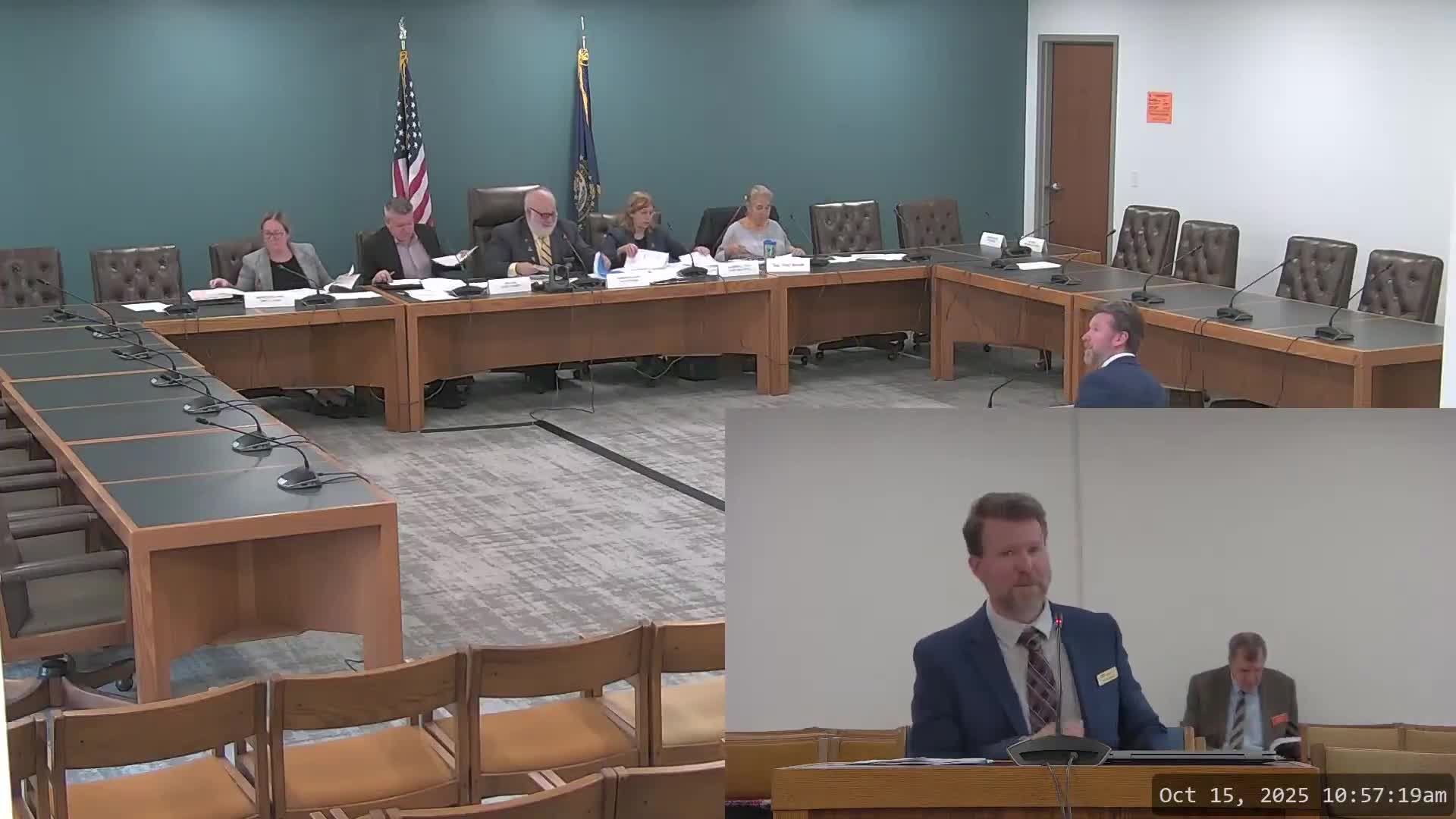DOE outlines SAT-based accountability, high opt-outs and caveats for state comparisons
Get AI-powered insights, summaries, and transcripts
Subscribe
Summary
Dr. Nate Green of the New Hampshire Department of Education explained the state's use of the SAT for eleventh-grade accountability, noted an ~82% participation rate (about 18% opt out), and cautioned that state-to-state comparisons require care because cut scores and participation rules differ.
Dr. Nate Green, division director for education analytics and resources at the New Hampshire Department of Education, explained the department’s use of College Board assessments as part of the state accountability system and described participation, reporting and comparability issues the committee should consider.
Green told the committee that New Hampshire administers SAT-based assessments for eleventh graders as part of its statewide accountability system and that the state did not administer assessments in 2020 because of the COVID-19 pandemic. He said New Hampshire’s reported participation in the SAT for accountability purposes runs around 82% (about 18% of students do not test), noting that New Hampshire law allows parental opt-out and that opt-out rates are higher at the eleventh-grade accountability point than at lower grades.
Comparing New Hampshire to Rhode Island, Green said Rhode Island’s College Board participation rate is roughly 99%, in part because Rhode Island does not include a parent opt-out allowance for that administration. He also said New Hampshire continues to require the SAT essay section in its state administration while many states and colleges have moved away from the essay; that requirement may affect participation and timing.
Green explained that College Board’s tests are staged-adaptive (items vary after an initial stage to match a student’s ability), that cut scores for proficiency levels are set by states, and that New Hampshire adopted College Board’s benchmark for the “proficient” (level 3) cut score when it adopted the SAT as the high-school assessment. He cautioned the committee that state comparisons using percent-proficient can be misleading unless the same cut scores and participation policies are applied. Green listed nine states that use the SAT for statewide accountability: Colorado, Connecticut, Delaware, Indiana, Michigan, New Hampshire, New Mexico, Rhode Island and West Virginia.
Green also reviewed available public tools and dashboards — iPlatform (iAchieve and iExplorer) and College Board reports — that the committee can use to track cohort outcomes, town-level reporting (recently published for three years), and other indicators. He told the committee the department is able to break out cohort-level achievement across grades and that the department can provide additional comparative information upon request.
